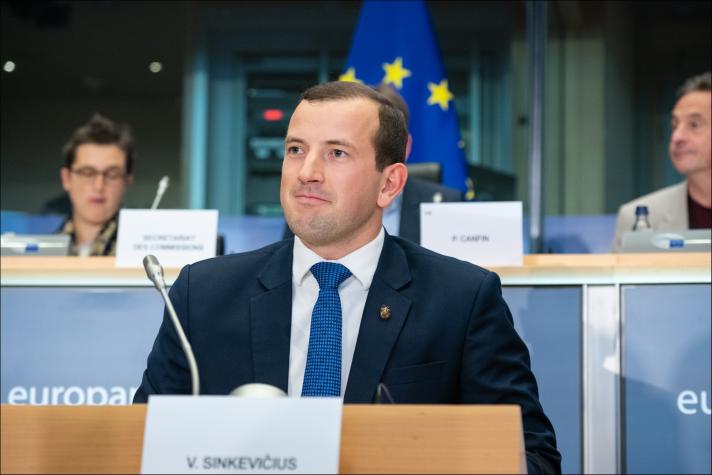The new European Commission top official responsible for the blue bioeconomy is the bloc’s youngest ever European Commissioner, but already has experience of government at the highest levels.
Aged 29, Virginijus Sinkevičius comes to the European Commission from Lithuania, where he was appointed Minister of Economy and Innovation in 2017. His role as European Commissioner for Environment and Oceans will be wide-ranging, covering issues from biodiversity to resource use to chemicals to fisheries.
His responsibility for the blue bioeconomy will fit within a broader remit to push forward with the EU’s circular economy plans and to achieve sustainability for the seafood and aquaculture sectors. New Commission president Ursula von der Leyen has asked him to bring fisheries and ocean resources into the EU ‘farm to fork’ strategy for sustainable food. This would see creation of an integrated production and consumption chain in which the traceability of food would be emphasised, to demonstrate that it is being produced in line with the best environmental practices.
In answers given as part of his hearing at the European Parliament on 3 October, Sinkevičius emphasised better use of resources and said he would build on EU measures taken so far to “bring the transition from a linear to a circular economy to a new level.” On the bioeconomy, including the blue bioeconomy, he said the overarching goal would be for all sectors that use renewable bio-resources to contribute to three key goals: reducing and reversing biodiversity loss, reducing pollution to zero, and achieving climate neutrality by 2050.
“Our bioeconomy must be based on sustainable primary production on land and at sea, and on an optimised use of biomass,” with sustainability facilitated by the right policies and economic instruments, he said. Unless this is done, the productivity of the oceans can be expected to decline, he added.
He also pledged to fight illegal, unregulated and unreported fishing, and emphasised that fishing is a “noble profession”. The livelihoods of fishing communities could be protected and enhanced through a new approach to the sustainable blue economy, covering research, renewable energy and maritime spatial planning and cooperation, he said. Specifically, he promised to develop a new strategy for healthy and sustainably-managed seas, with an extension of marine protected areas from about 10% of the EU’s seas currently to 30%. Tackling waste plastic in the oceans would also be a priority, he said.
Clearly, Sinkevičius faces huge challenges and a massive task list. Despite his relative youth, however, he said his experience working on innovation was good preparation. When tackling the many issues confronting the land and marine environments, “innovation will be key,” he said.
Information about Virginijus Sinkevičius 3 October hearing at the European Parliament is available at http://www.europarl.europa.eu/news/en/hearings2019/commission-hearings-2019/20190910STO60749/virginijus-sinkevicius-lithuania.

